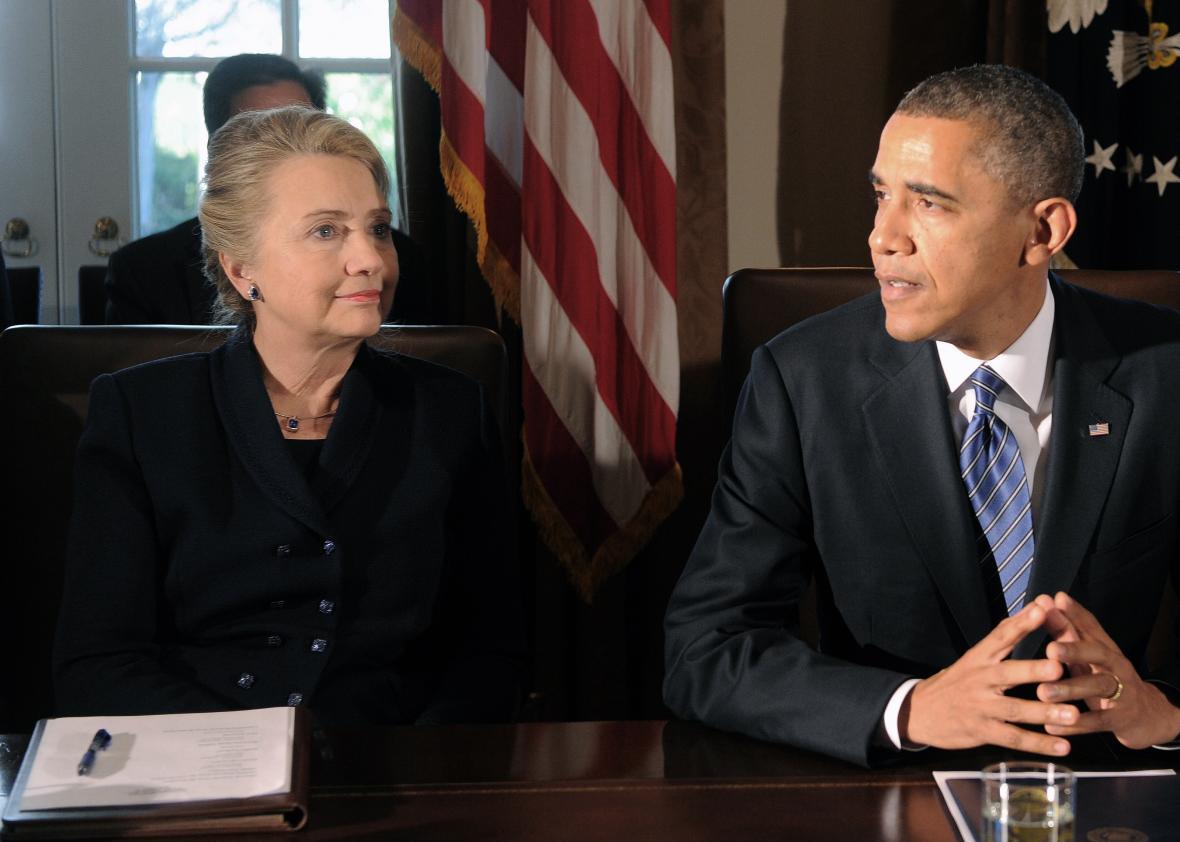In an address on foreign policy tonight, Jeb Bush plans to argue that Hillary Clinton “stood by” as the situation in Iraq deteriorated and ISIS rose to become a major terrorist power.
“Where was Secretary of State Clinton in all of this?” he will say, according to excerpts released by his campaign. “Like the president himself, she had opposed the surge, then joined in claiming credit for its success, then stood by as that hard won victory by American and allied forces was thrown away.”
Using the failures of Barack Obama’s foreign policy—the “Obama-Clinton doctrine” as Bush’s rival Scott Walker called it in last week’s debate—against Clinton is a fair move, given that she has fully endorsed (and been given partial credit for) the administration’s recent major foreign policy breakthroughs, including the nuclear deal with Iran and the diplomatic opening to Cuba. It’s also a smart move, because when it comes to what the U.S. could have done to prevent the disaster in Iraq and Syria, it’s going to be hard for Clinton to defend her record without criticizing her former boss—something Clinton won’t want to do during the Democratic primary, one would imagine.
Within the Obama administration, Clinton was an early and enthusiastic advocate for aiding the rebellion against Bashar al-Assad, at one point working with then-CIA Director David Petraeus to draft a plan for arming the rebels that Obama rejected. The position was close to what Sen. John McCain and presidential candidate Lindsey Graham were arguing for at the time, and McCain has subsequently criticized the president for rejecting it.
Clinton was on the hawkish side of most internal Obama administration foreign policy debates, siding frequently with former Defense Secretary Robert Gates, who has been scathing in his assessment of the president’s decision-making. Her side won out in the decision to intervene in Libya to topple Muammar al-Qaddafi (for better or worse) and lost out on Syria (for better or worse).
In an interview with the Atlantic’s Jeffery Goldberg last year, Clinton blamed the failure to help the rebels early in the civil war for the rise of ISIS and the worsening of a crisis that eventually spread to Iraq, saying, “The failure to help build up a credible fighting force of the people who were the originators of the protests against Assad—there were Islamists, there were secularists, there was everything in the middle—the failure to do that left a big vacuum, which the jihadists have now filled.” In the same interview, she criticized the foreign policy mantra attributed to Obama that goes “don’t do stupid stuff” or “don’t do stupid shit,” depending on the publication it’s being printed in. “Great nations need organizing principles, and ‘Don’t do stupid stuff’ is not an organizing principle,” she said.
But since the campaign season kicked off, Clinton has avoided criticizing the administration on foreign policy. As we get closer to the general election and Republicans continue to associate her with a policy they say is characterized by weakness and appeasement, it’s going to get harder for Clinton to present her actually fairly hawkish views without drawing a contrast between Obama’s foreign policy and what she would have done in his place. In the general, that contrast could be good for her. But we’re not in the general yet, and Bush is already ready to fight.
Of course, the easy retort to Bush’s latest attack is that none of this mess would be a problem if his brother hadn’t invaded Iraq in the first place, but Clinton definitely doesn’t want to get into talking about that decision again.
